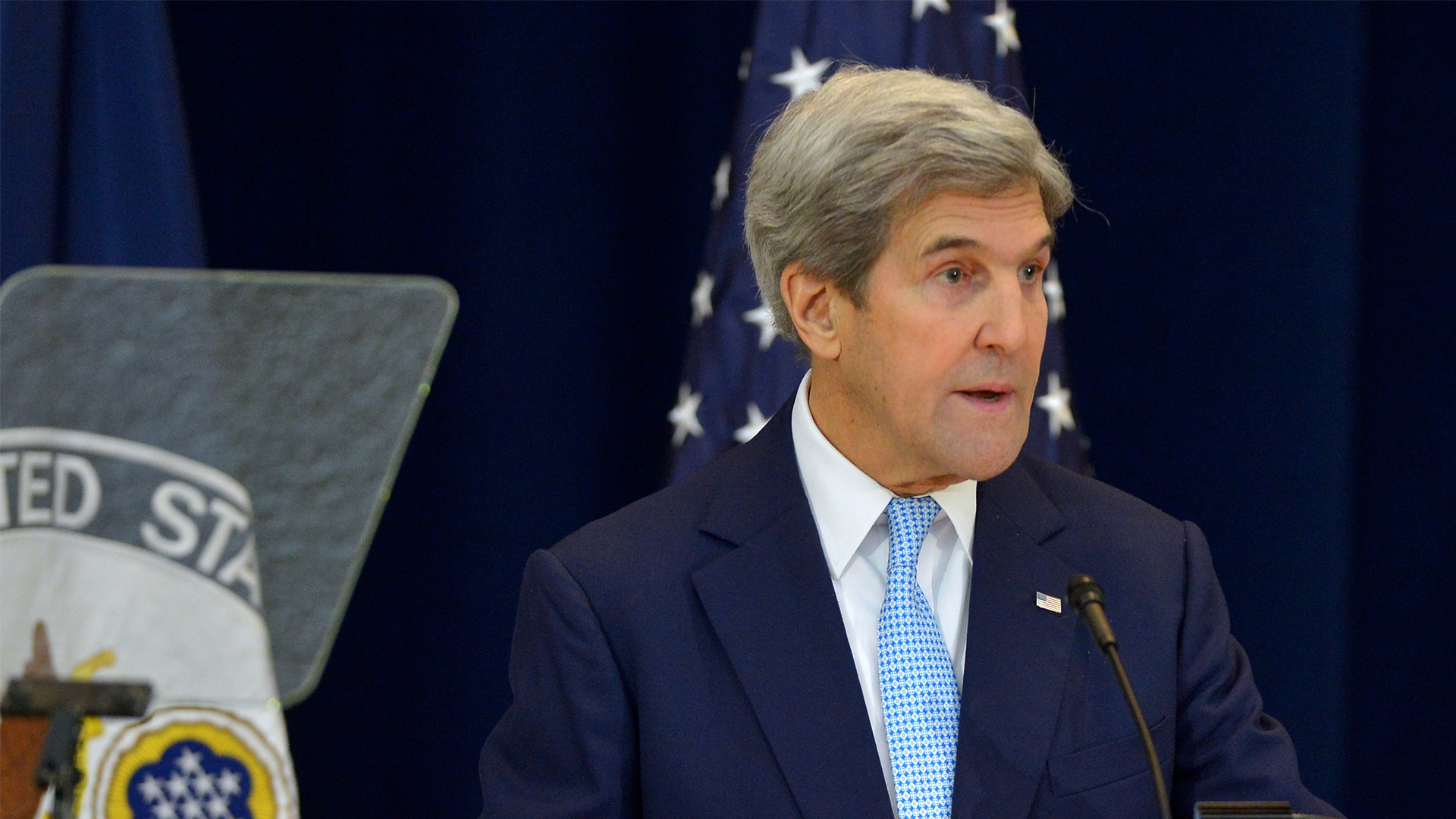
December 28, 2016
CNAS Press Note: Secretary Kerry’s Speech on the Two-State Solution
As Secretary of State John Kerry prepares to give a major address on the two-state solution and the controversy over UNSCR 2334 continues, Center for a New American Security (CNAS) Middle East Security Program Director Ilan Goldenberg has written a new Press Note, “Previewing Secretary Kerry’s Speech on the Two-State Solution.”
The full Press Note is below:
Later today, Secretary of State John Kerry will publicly offer a “comprehensive vision” on what a two-state solution between Israelis and Palestinians would look like. The full content of the speech is unclear, but Kerry is likely to outline parameters on the key final status issues: (1) territory; (2) security; (3) refugees; (4) Jerusalem; and (5) mutual recognition (i.e. Jewish State).
On territory, Kerry is likely to argue that the new Palestinian state will include the territory beyond the June 4, 1967 lines, with mutually agreed upon swaps (possibly of equal size) to account for changes that have occurred on the ground since. In exchange for this concession to the Palestinians, Kerry is likely to argue for robust measures to meet Israel’s security requirements – a critical element for Israel. Indeed, this is one of the areas where the situation has evolved most substantially since 2000, given the Hamas takeover of Gaza and the 2nd intifada. Kerry and General John Allen (Ret.) spent significant effort and time during the 2013-14 negotiations developing new ideas to address this issue (Many of which our outlined in CNAS’s May 2016 report – A Security System for the Two-State Solution).
The speech is also likely to call for a major concession from the Palestinians on the refugee issue, arguing they must acknowledge that very few will return to territory that will be held by Israel as part of a final agreement, but offering compensation through an internationally administered mechanism. In exchange, Kerry is likely to argue for two capitals in Jerusalem – one each for the Israeli and Palestinian states. Jewish neighborhoods would remain under Israeli sovereignty and Arab neighborhoods under Palestinian sovereignty. There would be special arrangements for the Old City. Indeed, in the last few years we have seen Arab and Jewish neighborhoods in Jerusalem increasingly separate from each other already, making such a solution potentially more workable.
Finally, Kerry is likely to call for the recognition of Israel as a Jewish State. But he may include some creative language that alleviates Palestinian concerns and demonstrate that this recognition is not intended to undermine the Palestinian narrative or anyway reduce the rights of Arab citizens of the state of Israel.
Some have questioned the purpose of such a speech coming so late in President Obama’s term. The speech certainly would have had a more substantive effect if it had been delivered two years earlier, perhaps in 2014 when the last round of the Israeli-Palestinian negotiations led by Secretary Kerry was on the verge of collapse.
Still, there are a number of reasons for moving ahead. First, Kerry led only the 3rd round of final status talks ever conducted between Israelis and Palestinians during the long history of the conflict. There is a benefit in getting ideas that were addressed in those negotiations into the public dialogue. Many of the ideas discussed above were initially laid out by Bill Clinton in the 2000 Clinton parameters, but 16 years later should be updated for the changing realities of the conflict. Moreover, in the aftermath of the American abstention on UNSCR 2334, it is important for the United States to clarify the differences between American policy on the final status issues and some of the elements in the resolution. This is especially relevant with regards to the language, which described all territory beyond the 1967 lines as “occupied Palestinian Territory.” While the Obama administration chose not to wield a veto over this language, Kerry will certainly explain the difference in the American position.
Finally, the speech may also be important if the next American administration chooses to break with 50 years of policy and end pursuit of the Two-State Solution as a U.S. policy goal. In that instance, these parameters could help others in Israel, Palestine, and the international community continue to make the case for a two-state agreement.
Goldenberg is available for interviews. To arrange an interview, please contact Neal Urwitz at nurwitz@cnas.org or 202-457-9409.
